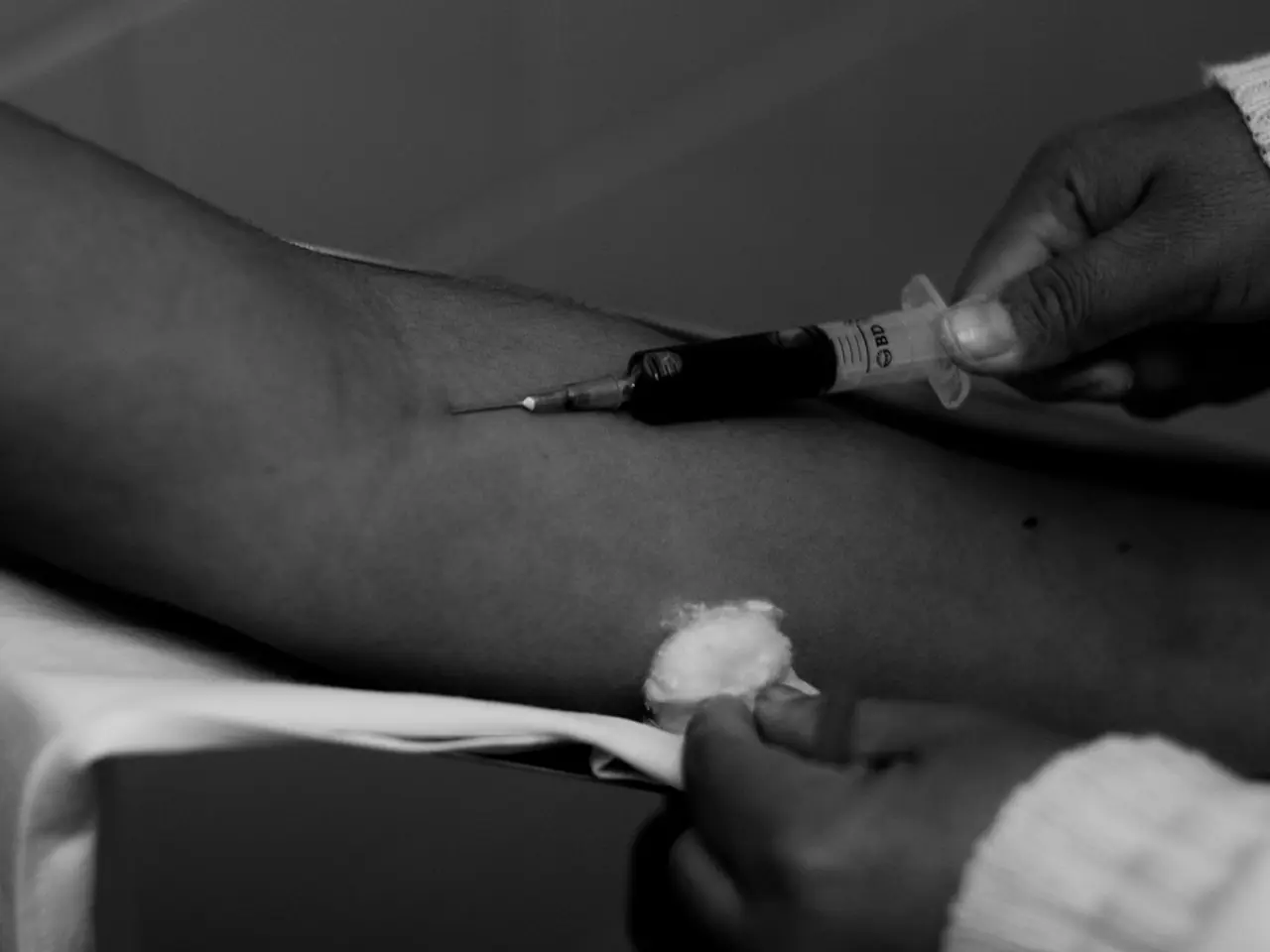United States pharmaceutical company, United Therapeutics Corporation, to examine data derived from the triumphant TETON-2 definitive trial of nebulized Tyvaso® in the treatment of idiopathic Pulmonary Fibrosis.
United Therapeutics Corporation will host a webcast on September 28, 2025, to discuss findings from the TETON-2 study, which evaluates the use of nebulized Tyvaso® (treprostinil) for the treatment of idiopathic pulmonary fibrosis (IPF). The webcast, accessible via United Therapeutics' website, is scheduled for 12:30 PM Eastern Time, although the identities of the presenters are currently unknown.
IPF is a scarring disease of the lungs, characterized by the progressive loss of the ability to transfer oxygen into the blood. According to recent research, it affects between 0.33 and 4.51 people per 10,000 persons worldwide, with United Therapeutics estimating there are over 100,000 IPF patients in the United States.
The primary endpoint of the TETON-2 study was the change in absolute forced vital capacity (FVC) from baseline to week 52. Secondary endpoints included time to clinical worsening, time to first acute exacerbation of IPF, overall survival at week 52, change in percent predicted FVC from baseline to week 52, change in the K-BILD questionnaire from baseline to week 52, and change in DLCO from baseline to week 52.
Safety assessments in the TETON-2 study included the development of adverse events, serious adverse events, vital signs, clinical laboratory parameters, and electrocardiogram parameters. Tyvaso® may cause acute bronchospasm, particularly in patients with asthma, COPD, or other bronchial hyperreactivity.
In a 12-week, placebo-controlled study (TRIUMPH I) of 235 patients with pulmonary arterial hypertension (PAH), the most common adverse reactions seen with TYVASO were cough, headache, throat irritation/pharyngolaryngeal pain, nausea, and flushing. In a 16-week, placebo-controlled study (INCREASE) of 326 patients with PH-ILD, adverse reactions with TYVASO were similar to the experience in studies of PAH.
Co-administration of the CYP2C8 enzyme inducer, rifampin, decreases exposure to treprostinil, but it's unclear if the safety and efficacy of treprostinil by the inhalation route are altered by inhibitors or inducers of CYP2C8. Human pharmacokinetic studies with an oral formulation of treprostinil (treprostinil diolamine) indicated that co-administration of the CYP2C8 enzyme inhibitor, gemfibrozil, increases exposure to treprostinil.
The concomitant use of TYVASO with diuretics, antihypertensives, or other vasodilators may increase the risk of symptomatic hypotension. Limited case reports of treprostinil use in pregnant women are insufficient to inform a drug-associated risk of adverse developmental outcomes.
Eligible subjects completing the TETON-2 study could enroll in the TETON-OLE study, an ongoing open-label extension study to evaluate the long-term safety and tolerability of nebulized Tyvaso in subjects with fibrotic lung disease. In geriatric patients (aged 65 years and over), the treatment effects and safety profile observed with TYVASO were similar to younger patients.
The TETON-2 study is a phase 3 registration study that achieved full enrollment in July 2024. It was conducted at sites in multiple countries, including Argentina, Australia, Belgium, Chile, Denmark, France, Germany, Israel, Italy, Mexico, the Netherlands, New Zealand, Peru, South Korea, Spain, and Taiwan.
Stay tuned for the webcast on September 28, 2025, to learn more about the potential use of Tyvaso® in the treatment of IPF.
Read also:
- New York joins a multistate health coalition to counteract chaos in federal vaccine distribution efforts
- Enhanced Iron Absorption in Female Health: Biotechnology Developed Plant Protein Outperforms Iron Supplements in Fermentation
- Controversy Surrounding Epstein Heats Up in Washington; Trump Endorses Homelessness Executive Order; More Events Reported
- Prevent the exploitation of our public health care systems for financial gain







